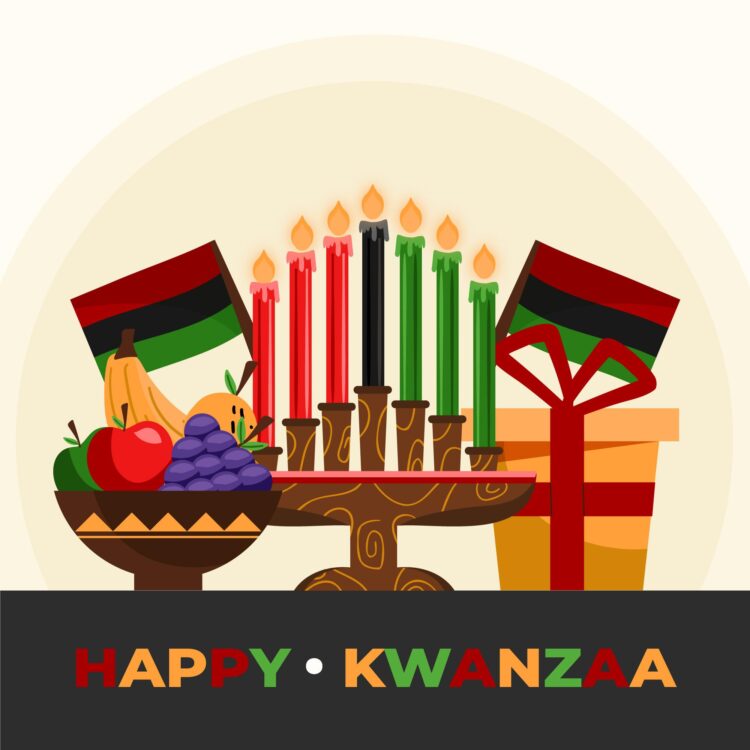Heri za Kwanzaa (Happy Kwanzaa)!
Share
Explore Our Galleries
Breaking News!
Today's news and culture by Black and other reporters in the Black and mainstream media.
Ways to Support ABHM?

December 26th marks the first day of Kwanzaa, or Umoja, which means “unity” in Swahili.
According to the African American Registry, Kwanzaa was founded by Dr. Maulana Karenga in 1966.
Umoja is the foundational principle of the Nguzo Saba (seven principles); without it, all other principles suffer. Kwanzaa is a unique African American celebration focused on the traditional African values of family, community responsibility, commerce, and self-improvement.
Despite some misconceptions, Kwanzaa is neither political nor religious nor a substitute for Christmas. Unity is a cardinal virtue of classic and general African societies.
[In the United States,] it is focused on family, generation, community, and Pan-African Umoja.
Learn about Kwanzaa and each virtue at the African American Registry.
Learn about Black history.
Stay up to date with the latest Black news and culture.









Comments Are Welcome
Note: We moderate submissions in order to create a space for meaningful dialogue, a space where museum visitors – adults and youth –– can exchange informed, thoughtful, and relevant comments that add value to our exhibits.
Racial slurs, personal attacks, obscenity, profanity, and SHOUTING do not meet the above standard. Such comments are posted in the exhibit Hateful Speech. Commercial promotions, impersonations, and incoherent comments likewise fail to meet our goals, so will not be posted. Submissions longer than 120 words will be shortened.
See our full Comments Policy here.